

Science and politics don’t often seem to go together. Science is actually better when politics isn’t involved. Yet politics might actually be improved by a little more reliance on science. It was probably this last part that drove Jeff Gillman, an associate professor of horticultural science at the University of Minnesota, and Eric Heberlig, an associate professor of political science at the University of North Carolina-Charlotte, to write How the Government Got in Your Backyard: Superweeds, Frankenfoods, Lawn Wars, and the (Nonpartisan) Truth About Environmental Politics (published by Timber Press).
I recently asked Jeff Gillman a few questions about the book, the authors’ nonpartisan stance, and what difference gardeners can make.
Steve Aitken: Is the government really in my backyard? And if so, can I get them to pull some weeds?
Jeff Gillman: To one degree or another, yes, the government is in your backyard. It regulates what plants you can grow and how you can grow them. Can you get the government to pull weeds? Actually yes—but it’ll cost you! In many locations the government is authorized to go in and remove noxious plants and to trim or remove your trees or other plants if it deems it necessary. And then it can bill you for it.
|
Post a comment by March 25 for a chance to win a copy of this book What do you think of the intersection of government and gardening? Log in and post a comment below by March 25 for a chance to win a copy of How the Government Got in Your Backyard. We’ll pick four comments at random and send the lucky winners a copy of Jeff and Eric’s book. |
|
SA: Your goal in the book is to present an unbiased look at these issues. Why not take a stand?
JG: Everyone’s taking stands, and unfortunately, some of those taking the strongest stands have the least information. When you really understand an issue it’s hard not to at least appreciate the other side—though you still might not agree.
Should marijuana be legalized? It’s obviously a drug, but it relieves the suffering of many critically ill people. Should we be allowed to use pesticides? They help us produce crops and have beautiful lawns, but they can have some terrible side effects. Should genetically modified plants be legal? They can drastically reduce the use of pesticides, but they can also increase pest resistance to pesticides and they can breed with wild plants.
It’s important to understand everyone’s position and the facts behind them so that we can strengthen our own arguments and so that we can appreciate the opinions of others. Don’t think that because Eric and I are willing to write about both sides that we don’t have opinions! But for the purposes of this book we wanted people to read the facts about the science and politics behind what the government is doing and then generate their own opinions based on their own values.
SA: Let’s see just how unbiased you are. Which would you rather be found doing:
A) Spraying synthetic herbicides on a over-fertilized native plant near a waterway
B) Defying your homeowners’ association by sitting naked while eating a tofu hot dog that you cooked on the warm engine of your electric car
C) Explaining to anyone doing (A) or (B) why other people might have a problem with what they are doing
JG: Since writing this book I’ve endured the pain of C already, so I guess I’d go with the known pain rather than the unknown—though, I must admit, B is tempting because I’m a big fan of tofu. And who doesn’t love to run around naked? But I just can’t see replacing my truck with an electric car.
There are lots of people out there with strong viewpoints who want to hear Eric and me support their side of an argument while poo-pooing contradictory evidence. But it’s not our job as professors or as authors to support their side. It’s our job to tell all of the facts and relate all of the pertinent science and politics that we reasonably can—not just the stuff that supports one side or another.
For environmental issues it’s rare to have a monopoly on The Truth. At the end of the day two reasonable people can have very different viewpoints because they have different sets of values. We need to apply our values to ALL of the existing data, and then make an informed decision.
SA: How do you respond to people who confuse explaining a certain viewpoint with espousing it?
JG: This is a problem I’ve run into a lot lately. Many people think that when I relate facts that support a viewpoint that I must, necessarily, support it. Not true! Being able to explain the other side of an argument and agreeing with it are two different things.
I respond by telling them that I hone my own viewpoints by trying to put myself into the shoes of other people who I respect (particularly scientists) but who have different viewpoints than I do and then trying to figure out why they have these different views. It doesn’t usually change my mind, but it does open it up.
SA: Is there one section of the book that elicits more reactions than the others?
JG: So far the biotechnology, organics, and invasives section have elicited the greatest response.
I can practically guarantee that you’ll find something in this book that you don’t like. And I think that’s a good thing because seeing something that you disagree with will, hopefully, lead you do more research and think more about your viewpoints. That’s Eric and my goal with this book—to get people to think.
SA: Of all the topics covered in your book (invasive plants, fertilizers, alternative energy, etc.), which is the most pressing for our country to deal with?
JG: The most pressing issue is that of alternative energy because it affects so many other issues. In particular, the use (or nonuse, as the case may be) of biofuels can affect global warming, fertilizers, pesticides, and even the use of genetically modified plants.
Biofuels seem like a great idea, and to some extent they are a good idea, but I don’t think that most people understand that, even if we converted all of the corn in our country to ethanol, it would only replace about 14 percent of the gasoline that we use. We need to go beyond corn as a biofuel, and the way gas prices are going now, we need to do it soon.
SA: Who is the best agent of change on these issues: real gardeners or the government?
JG: No fair only giving me two choices! The best agent of change for our environment is a determined group of people, such as gardeners, who are willing to take on the government and who won’t give up despite the fact that there are organized groups who oppose their ideas. That said, that group had better be well educated on both sides of the issue that they’re arguing for or against — and they’d better have some good science behind them.
SA: If you get a guest spot on a TV show—say The Daily Show, The O’Reily Factor, or Glee—will you mention Fine Gardening?
JG: Of course—you guys are the best!
SA: Thanks, Jeff. Your check is in the mail.


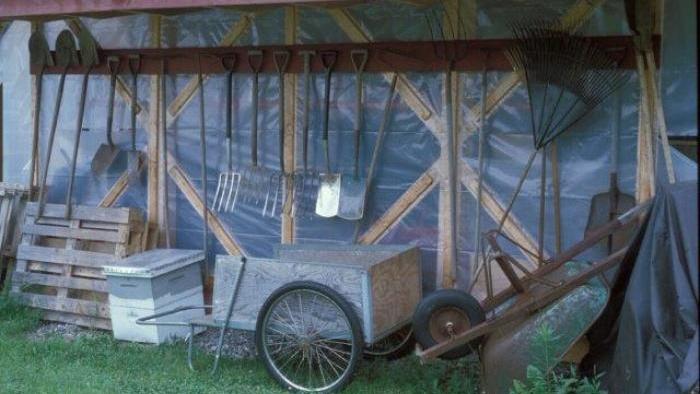




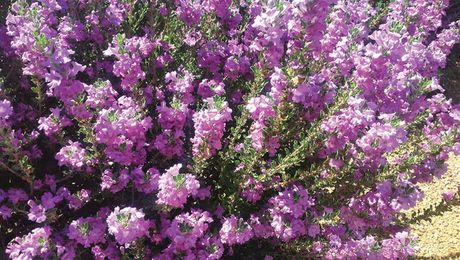

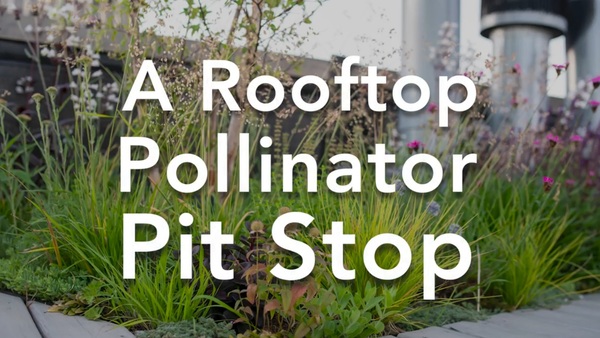

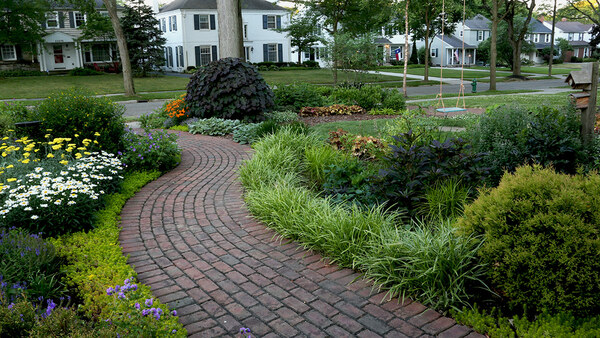
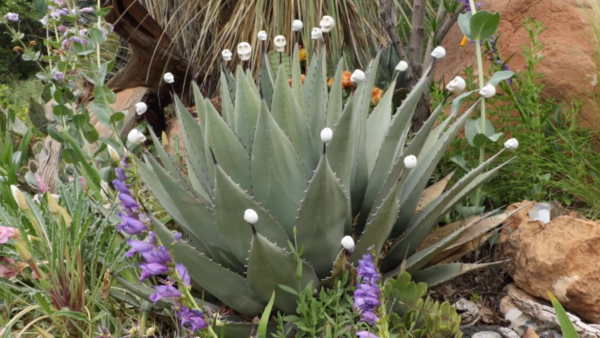



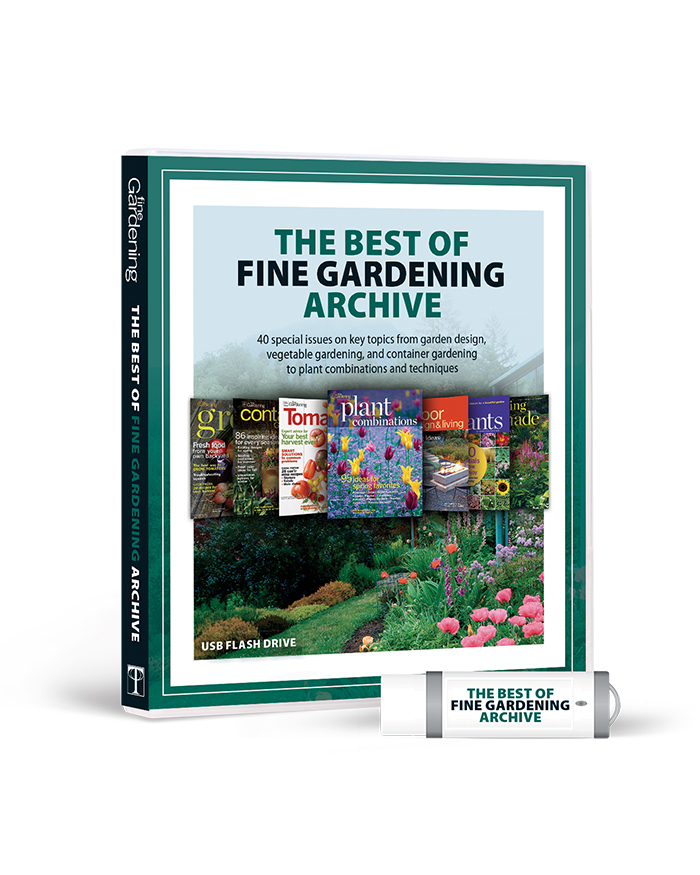
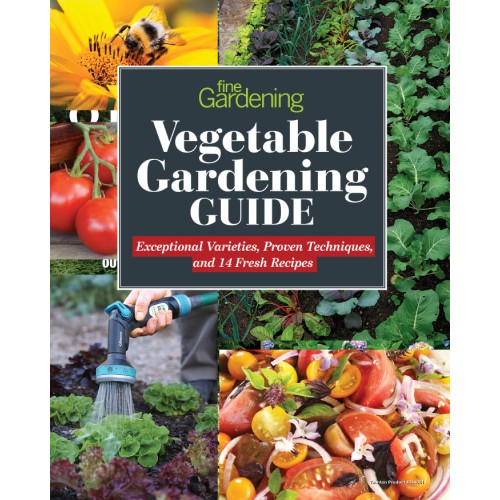


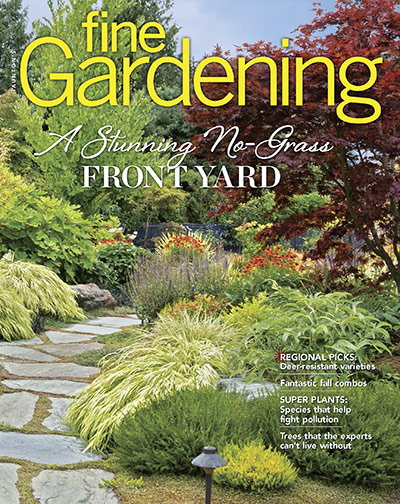
Comments
I love a book that makes me think! I am a person who believes that there are many sides to any argument and I like to be exposed to other viewpoints. I am definitely putting this book on my wishlist.
Very interesting interview.....would love to read more, especially concerning biotech and the genetic modification of seeds/foods. I like to be well informed of all the facts and listening to the pros and cons of an issue before discussing it. This book will make a good addition to my gardening library.
Hmm... some very complex issues are being discussed here and I would like to know more before I make a decision on government and gardening. I agree with the bio-fuel issue, seems we could really be doing more in that department and what about marijuana. There are so many uses for this plant it seems really stupid not to be doing more with it! This book sounds like a great read!
I think people should be free to grow food in the yard they pay taxes on. I do expect if everyone started growing food to avoid the toxins in the food that has been genetically modified, that the government would step in because anything that has a trickle down effect on the economy is the first concern for most government policies.
After learning about the Bovine Growth Hormone(rBGH)that was being fed to animals and the cancer problems that follows makes me see that the government has not been actually in the consumers corner in the fight to serve up nutritious wholesome food and products derived from the chemical and genetically altered plants and animals.
I do not want to eat or serve toxins to my family and friends but I cannot afford to serve all organic whole foods from whole food markets. I grow all that I can to feed my family. It would be no surprise to me if it one day became illegal for us to grow our own food because it would not support the companies that are pushing the chemicals and food and prepared meals that are genetically modified.
I would love to read this book "How the Government Got in Your Backyard: Superweeds, Frankenfoods, Lawn Wars, and the (Nonpartisan) Truth About Environmental Politics" it may give me answers to questions I have about our future in home grown food and how the government views the issue.
As for me, I am going to water my sprouts I have started indoors... :0) Have a Super Day!!!
Sounds like I NEED this book before I can make an informed decision! And I though my HOA was a pain in the rear! :) This book sounds like a must read!
I wonder what everyone thinks is the most important topic: Plant patents? Invasives? GMOs? Pesticides? Biofuel? Organic Food?
If I don't win a copy of this book, I'll certainly be purchasing it. As a gardener of over 30 years and a garden writer, I've been waiting for an unbiased book to come along so I can understand the issues with clarity. Word on the street is not only confusing, it only half-informed and drives me nuts.
SteveA: For me personally, I'm mostly concerned with pesticides and GMO. I have this feeling that pesticides are causing a lot of damage health wise for not only the natural world, but for humans. And GMO makes me wince. But I'll read the book and get back to you on this. *grin*
My first exposure to "The Government" was in England. We had a Bowler hatted male visit our farm from the Agriculture Dept. He was concerned because we were not putting one field into cultivation. Per Government regulations all arable land must be put into crop rotation on a four year basis. The field in question was 70% steep hill, had it been plowed all the soil would have been at the bottom of the hill leaving rocky clay subsoil exposed. After my step-dad gave the gentleman a lesson in farming, he left and we never heard from the Dept. again.
When the "Government" gets involved with land, crops, gardening, fertilizing, or any other part of food production, things get messed up in a hurry. Most of the regulations coming from Washington DC, are so asinine, or impractical, as to make those of us who live close to the soil wonder which planet did they get their experience on. Surely not Earth! Now we have to get permission to cut trees, dig a ditch for drainage purposes, or use manure for fertilizing, common sense input is totally ignored!!
"How the Government Got in Your Backyard" sound intriguing. There are so many vital issues to be addressed. I am very concerned about (1) lack of plant diversity, (2) patented seeds, especially Round Up-ready corn and the way Monsanto has sledgehammered farmers who try to use anything but their products, (3) the implications of using food crops for biofuels, (4) the globalization of crops and its implications. Thanks, Steven and Jeff, for the nice teaser! Can't wait to read more.
Not exactly sure what Jeff Gillman means by "Take on the Government" in his last comment, "The best agent of change for our environment is a determined group of people, such as gardeners, who are willing to take on the government and who won't give up despite the fact that there are organized groups who oppose their ideas." People to BECOME their government, and further, to change their mindset and actions to fully embrace the values of continually being an active part of their governments.
It is too important to be left to others. But it is hard work, takes times and is often boring....all the more reason for each of us to take on more of our share of the responsibility of integrating into our own governments to design and affect policies and their implementation. Start by getting on the various Boards and Commissions that provide background information and feedback to the legislative and ordinance passing bodies. Begin to make a difference.
I live on the Gulf Coast. Water quality is a huge issue. Our waters have been affected by contamination from many sources. I work as a lobbyist of sorts and have been a master gardener for 21 years. I work and volunteer with many folks who have strong opinions, different than mine. As the author notes, all of us filter our "facts" through our values and world view. It is clear that many of our trusted sources of information are influenced by public funding which tend to promulgate and "prove" preconceived premises, rather than doing the research first to seek answers to problems. With an overabundance of information, we all tend to seek those viewpoints which support our own and dismiss -- too often rather rashly -- other ideas. The polarization is icing us over and isolating us into hostile little sub-cultures. How much more pleasant and productive to openly explore varying viewpoints rather than rant and rave and slam dunk dogma.
Everyone is talking about GMO these days. I consider myself an environmentalist but I welcome hearing what the "other side" has for evidence. We can't move forward unless we have all the facts and it seems like this book might have found a way to present them fairly. I look forward to reading it!
I also want to say that the humor in the interview is appreciated. It seems like print interviews are often too dry to keep my short attention span! Thanks.
Another of so many "shakeout" dilemmas in our hands in today's world would seem to have gained valid signposts. I respect anyone who has a cool enough outlook to search out the real reasons behind all sides of an argument. These are HOT topics that people become dizzily partisan about- many without the faintest resolve to learn the facts. I would find this text for the struggle to get to the purest TRUTH enthralling.
While science is a wonderful thing, I believe that we should be able to choose whether or not we want to plant/eat genetically modified foods! It is a simple and basic right to choose what foods we produce and consume. I have issues with the government wanting to stir far too many pots but this is TOO MUCH! Thought provoking interview...
Now, what a treat to read material on the environment without feeling that I have to have a fire extinguisher handy just in case the author wants to heat the discussion to ignition.
Sounds like an informative book ... one I can read without the author wanting to turn me into a flaming, extremist zealot.
Just the facts: How refreshing. Receiving information that allows me to further explore the subject is my kind of book. Yes, I have my opinion on this very subject that is quite passionate, but I know little of the other side. I look forward to reading this book. I was impressed by the interview. How does one just give facts and not put a personal spin on it? Sitting on the fence is difficult as sooner or later, your own personal feelings slip out.
Interesting, with a topic I can appreciate. If I don't win a copy of the book then I will have to put it on my Kindle for outdoor reading (in my backyard)this spring!
Jeff Gillman spoke at a MG conference I attended. At that time his topic was "The Truth about Garden Rememdies". The talk was informative, humorous, and fact based. I suspect this book will be the same and trust Mr. Gillman to present the facts. Looking forward to reading it.
When I read Fine Gardening, the LAST thing I want to see is politics!
The title of the book sounds Tea Party-like.
PLEASE stick to plants!
I've been looking forward to reading this since the blog Garden Rant wrote that Jeff had another book coming out (have already read his books on organic gardening and garden remedies).
I expect he will be bringing the same cool and objective, scientifically based view point to these hot button issues. Looking forward to reading it soon!
When you present both sides of issues and allow people to come to their own conclusions, people will still have opinions, hopefully, better informed opinions. I certainly don't have answers, but I do have lots of questions. The better informed we are, the more we think about important issues, the more people involved in the discussion, the better chances we have for a quality outcome. Scientists don't always agree. Gardeners don't always agree. Farmers don't always agree. Collectively, we stand a better chance of influencing government.
There have been advances in horticulture/agriculture that have made life easier and possible for millions of people. If there is a line we should not cross with scientific advancement, where is that line? Since man first learned to grow crops and build semi-permanent homes, man has been devising ways to protect the yield. Early man kept the seeds from the best, the biggest, the more productive plants. Early man chose which features/benefits/strengths he wanted for next year's food crops. Wild plants became "cultivated" and those home grown plants were no longer the same as their wild cousins. Isn't this genetic modification on the slow plan?
If I don't win this book, I will find way to still read it.
Wow! A Truth-O-Meter for gardeners! I consider this a must read for those of us who are constantly searching for the answers to our heartfelt questions. And with humor - like an enchanting garden view - always welcome.
Truth is hard to find and any book that attempts to present both sides is well worth reading. We then can each make our own determination as to which is most truthful. To bad our political leaders do not have this ability. As a true conservative who wants all the facts on both sides, unlike the MSM, my email name tells it all. Thank you.
Sounds like a great read. I just recently watched Food, Inc. and this sounds similar, but perhaps with a more unbiased viewpoint.
I am also ordering the book, but would love to see Professor Gillman on the Daily Show. Colbert is my favorite, but I don't know how Colbert would be able to be contrarian to an unbiased report. I think this is an important topic and needs to get into a broader community than horticulturists as policies and laws are changed politicians through popular opinion. Remember the effects of "Silent Spring"?
I think there are very few of us gardeners that don't use any chemicals (just because something is organic or plant based does not mean it cannot be harmful). There are a lot of important issues covered in this book.
Dr. Gill man's books are always a good read. I'm looking forward to this one as well.
Thank you for writing about this book. This is exactly what Fine Gardening needs to do more of: be a source of information for gardeners of all the issues – local, national, and global - that are increasingly affecting their gardens and gardening. (There are plenty of “eye candy” magazines out there for those who wish to remain in blissful ignorance.)
As for “taking on the government”, it can be much easier than you think to make a positive impact. About 18 months ago, in response to a proposed change in my township’s weed ordinance, I wrote a two-page letter to each of my supervisors, asking that native plants and ecological landscapes (e.g., meadows, prairies) be exempt. I included a short bulleted list of benefits of ecological gardening and a very brief description of each, and concluded with an excerpt from the weed ordinance of a neighboring township (generally viewed as the “leading” township in our county) which provides protection for ecological gardens. I attended the next township meeting and read parts of my letter during the “new business” portion of the meeting. To my surprise, my proposal to amend the weed ordinance was passed unanimously. I’ve since been asked to advise the townships’ Planning Commission on some environmental issues and asked to participate in a citizen’s focus group for a new comprehensive plan for the township.
So I leave my fellow gardeners with the words of Doug Tallamy (entomologist at University of Delaware and author of Bringing Nature Home: How You Can Sustain Wildlife with Native Plants”): “Gardening has taken on a role that transcends the needs of the gardener… gardeners have become important players in the management of our nation’s wildlife. It is now in the power of individual gardeners to make a difference… to the future of biodiversity, to the native plants and animals of North America and the ecosystems that sustain them.”
This is a loaded issue. Having all the facts presented regarding genetically modified plants and the long-term effects of using them would be worth the price of the book. I worry because we're told things are perfectly safe, thinking about the nuclear power plants in Japan here, and many years later the terrifying truth emerges. Not so safe after all.
lol! Did someone just complain about this book by the title alone. I love Jeff Gillman's books. He will tell you the truth whether you like it or not. If politicians did this we'd be much better off on so many issues and actually help people and problems that truly need help. We defintely need more science in politics and sometimes to often less politics in our backyards. That said I just want my city to take down the dead 65000 lb street tree in front of my house. Sometimes the government can be helpful. I reccomended Jeff's books to a women at a gardening seminar last week, she bought 2 of his books, but was disappointed that they didn't have this book offered. Thanks for showing all sides and telling me the truth like it or not I always learn.
I just added this book to my birthday wish list (March 28). I'm looking forward to reading it. I live in an association where no one cares about the environment and the "I've got to beat the Jones's" attitude as far as lawns and ornamentals is the rule. We live near a major river and protected wetlands. I'm trying to live by example by using natives and bio-safe solutions for insect and weed control. I hope to be able to influence and educate my neighbors over the next few growing seasons as my lawn and other plants look healthy and take less maintenance than their lawns.
I think this book attempts to address many things that are relevant to what we as ordinary gardeners would find helpful and need to know. I appreciate people like the author who research these issues and provide an easily readable source of information. I would love to have this book!!!
Although I am from Canada, this sounds like a book I would like to read. I appreciate the attempt to NOT take a stand!
Hurray!! The facts, finally! Bring it on - and please, please--- pick me to win!
I can think of so many people I'd like to give this book to! My book club just read The Botany of Desire and had a really intense discussion that, of course, turned to Montsano and lobbying in our government. I intend to read this book so I can be truly informed in future discussions.
Sounds like a breath of fresh air in our cultural "garden" of manure!!
This sounds like a book for me. I feel I'm informed on this "environmental thing" but there's always room for additional unbiased info. The EPA is a pain in my back--such inane orders and restrictions! I feel the Politicians have hired people in that department to promulgate their pet ideas and means to line their pockets. For example The Chesapeake Bay project. There is no mention of the big money investors being reined in when they want to destroy the wetlands to construct more shore line development. Our Creator put those wetlands along the coast lines of countries so that toxins may be filtered out before the water reaches the larger bodies of water. No, they tell the farmers along the paths of rivers they must fence off the streams that run through their property to keep the livestock out of the water; they push lowering the amount of fertilizer that may be used on crop lands for food--do they enforce less amounts on the big conglomerate farms that are increasing corn crops for ethanol (don't they realize they're taking food out of the mouths of the people by the ever increasing prices of corn and it's derivitives and making a product for addition to gasoline which is more costly than making gasoline. Said product is playing havoc on small engines (lawnmowers, chain saws, etc) as well as automobile engines.) I wonder who appointed these people in this agency and what their credentials are other than being "yes" people. Our Congressmen need to read this book and increase their unbiased knowledge regarding this topic. Man has become a poor steward of out Planet Earth yet if one reads history, geology,etc. they would see that there have been periods of too warm,too cold,storms, earthquakes,fires and floods as a means of re-establishing a viable environment afterward. Man is not God and cannot assume that power. Thanks for listening--I'll try to find the book and increase my knowledge.
This sounds like a book for me. Unbiased. Just the "dirt" on the important issues. If I don't win, I will be buying a copy. Good luck everyone.
"Fair and Balanced." "We Report, You Decide." What a concept for a book about government policies!
The ways we have been allowing our government(s) to intrude ever more closely into our private domains is just awful. And it has come about because we don't want to be bothered with having to learn about the issues; just let "them" handle it. Well, what we have is what "they" have handed us!
Now comes a book that promises to provide both sides of several issues in easy-to-digest form so we can better arm ourselves against those who want to force their "solutions" on us.
I'm looking forward to an enjoyable read!
What a great lesson in approaching any problem, Wouldn't we rejoice if our Washington politicians would approach all the problems facing our country trying to understand and appreciate both sides!
If we are to be effective - we must all spin the same story. That story should be available in print so everyone can approach his or her representative to secure their ears for things that need to be changed.
Could we have a printed page of where we are standing on the issues? Any changes or additions could be added or subtracted in regions where the need arose.
The Gov in the backyard sounds like a must read. Thanks!
As a frustrated environmentalist this book sounds like a great read to me. A chance to understand both sides of these issues would be both informative and helpful. Useful argument on a issue does require the ability to see the other side.
What a breath of fresh air - unbiased reporting. Just imagine getting two points of view! Perhaps our news channels should take a lesson. Book sound great!
Just what I've been looking for--an unbiased look at the issues. How rare to find that these days.
"For environmental issues it's rare to have a monopoly on The Truth" - and how true that is! The problem with unlimited access to information comes in the dissemination of that info.
I teach vegetable gardening in some community education programs and I am always trying to get my students to think beyond the labels and form their own opinions. I already recommend "The Truth about Garden Remedies" and would love to add this to my library.
I am a garden designer and my path has lead me into the world or back into the world of natural solutions for natural problems (like my great grandparents use to do.) I have been going to lectures and am truly saddened by what our (we the people's) government has allowed to happen. When will we put our health and the future before money! I love when people ask me to plan a place for veggies in the garden......I am getting the word out one person at a time. Hooray that you wrote a whole book on it!!!!
A year-and-a-half ago I moved from NJ to Victoria, BC where the government has recently banned the use of Round-up by home gardeners--it is still permitted for "commercial application" and the sale and of incandescent light-bulbs over 40 watts. It is not only the US government who is in peoples yards--and houses.
As I was traveling across the US on I-80 through Iowa and then on I-90 in my car I was truly appalled by the amount of corn fields I passed. I saw a few sun-flower fields and some lovely wild-flowers along the margins, but every available acre of un-forested land not filled with housing, towns/cities, or grazing land as I got farther west was planted in corn--no wheat, oats, barley, soybeans, etc. Surely this is not a good thing for our environment or for our food supply. I was however, very pleased when we passed through several miles of windmills in Iowa.
Interesting. I know the Government is in my backyard and I want them the heck out! However, I am always skeptical when someone tells me they are giving me both sides. I will read this book with an extra sharp eye! It would be a treat if I won a copy! Thanks for taking the time to write this book. I hope you make lots of money. Capitalism Works!
Wonderful segue into gardening fats. Comments from "jdigi" hit the mark! Environmental concerns are real, but often taken out of context with absolutely no facts to support many of the scary concerns. GM foods may save the starving of the world. The removal of the pesticide DDT has doomed a million people each year to death from malaria for some soft eggs! Never-the-less, I need to know both sides and will read it NOW.
I often let a Wisconsin invasive weed (Garlic Mustard) grow in my backyard making sure it's controlled to the best of my ability (don't let it flower) because we LIKE to eat it in various ways (salads, casseroles, etc.). It's free and abundant. The state is involved in an effort to rid our Wisconsin of this nutritious and tasty plant. Instead of using chemical eradication, we take our revenge against this native plant by ingesting it! My neighbors however are forever reminding us they can see it and they're angered by this not understanding. On the other hand, they use enormous amounts of chemicals in their gardens with non-native and GMO flowers throughout the year. Last autumn, we even caught them on video dumping pail after pail of some horrific greenish liquid under the privacy fence into our yard. Just WHOM is doing more damage to the planet? - We who let native plants grow naturally while keeping in mind we're caretakers for future generations, or they who have no concept of what or where they're dumping chemicals that will eventually harm and destroy not only all vegetation but our bodies as well? As someone who always shares and passes along books once they've been read, I'd love to share a copy of this book with them and others! Thanks for providing this opportunity.
As an urban planner who has enforced government regulations of numerous backyards for many years, you'd be amazed at all the things people do in their yards to screw up the environment for everyone else. The politics involved constantly runs up against the science and unfortunately, the politics usually wins. Sad but true.
I'd be interested in reading the book to see if my experiences are unique to the Pacific NW.
Proartist, Garlic Mustard is NOT a native plant. It is an invasive, aggressive weed of European origin. It is very hard to get rid of. It consumes a lot of woodlands around here, pushing out the native plants. That being said, it makes a FINE pesto. But there are not enough people eating it to make a dent in the population, unfortunately.
I work in natural areas management. We get rid of the garlic mustard thusly, no pesticides required. We plant blue fescue, another non-native, aggressive plant, which crowds out the garlic mustard. Then we burn the fescue, which doesn't tolerate fire. And since we have to burn anyway....it works really well.
Also..."facts" don't have a side. It is fact, or it is not. Catmint...you're in the PNW? Do you have a lot of problems with English Ivy there?
retired99 is right...the government is US! I am a gardener & a farmer & all this stuff just makes me put my head in my hands. I'll buy this book & if I also win it I'll give to the library of the local high school.'Silent Spring' inspired my generation: young people are usually willing to hear all sides before they decide, even if only to be different from their parents! Can't wait for this book.
What a great opportunity to truly learn about this topic in an unbiased way! Looking forward to reading this book!
It is refreshing to read unbiased information on this topic. Frankly most everything we read in the media today has a distinct liberal bias. I look forward to getting the facts from this book.
Also in reference to Phyllis02's comment above: we are constantly fed politics in all media in this country. I personally take her comment about the title being "Tea-party like" as a compliment. Let's not forget the fact that we enjoying this way of life thanks to free thinking people who questioned government authority and said "ENOUGH!"
Recently, in my area of the country, a COMMUNITY chili cook off was invaded by state health officials who would not allow any HOMEGROWN ingredients to be used in the contest/cook off. That means your backyard (mine, organically) grown cilantro, basil, spinach ... are now all considered a "threat to public safety." Better not think about using any of your home baked goods for the church bake sale or school cookie sale, either. Maybe your fresh cut garden flowers will be the next big threat. What is the REAL threat to our public safety (and well being)? The government IS in our backyards here and they're burying my rights to grow and choose. Guess what? No more chili cook offs. They've canceled. So have similar events such as community dinners. We'll be eating our garden veggies under the table with the lights off and the doors locked in no time.
Recently, friends have told me about the genetically modified seeds controversy. And I must admit to being confused. Where does truth lie on this issue? I hope the book can bring some clarity.
Thank you Vegetable Gardener for highlighting this book!
I am always amazed at the people who take the stand that if you don't agree with them, you are against them. A healthy exchange of ideas is much preferred to a militant stand on almost every subject. My only problem with gardening is finding the time to do more than tend four rose bushes that seem to get along quite nicely without my constant attention.
Because I consider myself an eternal optimist, I welcome the publication of this book as means to educate. Its premise that trusting the reader to make informed decisions, based on objective, neutral science, that should then be the basis of policy (kinda tips the hat is a certain direction regarding the authors’ own set of beliefs) is a welcome alternative to the issue advocacy that regularly permeates public discourse – even in a field as theoretically non-political as consumer horticulture. My optimism, however, is tempered by having lived for 20+ years in and around Washington D.C. where politics is king, and objective neutral science often takes a back seat to political expediency. Not even Rachel Carson advocated the total banning of DDT, nor, after 7 months of hearings and testimony did the EPA administrative judge. Here’s hoping that this book fuels my optimism and tempers my cynicism and won’t result in caffeine carrying a warning label.
What's next? Garden cops? Doesn't the government have enough to do without getting involved with what people are growing in their own gardens?
I love gardening and try to be as organic as possible. I am very angry with our government who has a deaf ear when it comes to what "We the People" want. We are finally standing up and saying Hey, but to what avail when they don't listen? Politics and knowledge are on polar ends of the universe. We have poisoned our Earth and no amount of electric cars is going to undue the damage of years of pesticide use and poor crop rotation. We the People - need to be very mindful of where we spend our hard earned dollars - Money is what speaks. I am looking forward to the book!!
I have had experience with agriculture and the government. While I do not like the fact that the government can and does dictate what I can grow, we as a society has put those same people in office. I am a little biased on this subject though since I am a environmentalist with a degree in agriculture. A lot of times these areas clash in the department of rights.
Love the concept of "How the Government Got in Your Backyard". Will be buying it. Hope it's as good as the author's blog stuff so I can recommend to the local garden club!
Interesting interview. I am adding the book to my wishlist.
I am not surprised that the people in Washington appointed by excutive order to mico manage our lives from the air we breathe to the gardens we tend could never actually grow a veggie let alone identify a weed from a sapling. But sadly, most of us have been quietly minding our own business growing food & being ever mindful of what we are doing it for. And it seems to me that the real invasion of a noxious "weed" has its roots deeply embedded in our bank accounts, medical choices & ALL AREAS OF EDUCATION. There is only one way to get rid of unwanted weeds. I simply start digging until I reach the very end of the root. Never the easiest method but for me I actually feel very satisfied when is out. If any of you out there get my drift, then I am challenging you BECOME a garden warrior. It's not going away without hard work. Oh and don't forget to VOTE!!!
The government is an elected body of representative's we chose. They present and defend our views and stands on various issues.
I think it is only fair that they enter the backyard of people and then bill them for it! This because I think that the backyards they enter are often the ones that neglect their area and that of their neighborhoods. Sometimes it would seem unfair, but it is necessary to protect neighborhoods from insensitive and selfish people who fail to maintain their backyards but would like to make as much money from that land no matter which way they chose!
But it is completely wrong to enter anyone's private area without a prior notice / warning. And oh yeah, the growth of marijuana on licensed farms should be legalized.
As a pediatric nurse practitioner, I can relate to the arguments. I like to think of it like evidence-based practice which aims to apply the best available evidence gained from the scientific method to clinical application. It seeks to assess the strength of evidence of the risks and benefits. Quality can range from statistical analysis and fancy clinical trials all the way down to conventional wisdom. We have to remember these grass root factors - i.e. quality and value-of-life. The books is trying to clarify both the governments part, albeit scientific based, against the quality of life factors, in order to best predict outcomes. We have to be armed with the knowledge and sensibility of what life on earth will be like - both in the present time and for generations to come. HOORA to all our mother earth caretakers!
I don't have strong opinions on either side of this argument so if the writers are as unbiased as it's possible to be, I'd be very interested to hear both sides of the story.
cellbioprof writes: “As for ‘taking on the government’, it can be much easier than you think to make a positive impact.” Go back and read that at 8:29 am, March 14. We did about the same thing in our town.
This touches on an extremely important aspect often ignored. People are often quick to scream about the EPA (federal), but don’t even know that they have State and County/Township/city/town governments that have much more direct impact on their gardening lives. Local zoning ordinances generally control what grows or doesn’t, is allowed or isn’t.
It’s the homeowners’ associations in our area that are nuts. One bad example: only bare lawn and 2 trees (small ornamentals) in front yards and boring Japanese foundation plants rather than living landscapes. Obviously we do not have a HOA; our neighborhood is generally considered by some to be “unkempt”. BUT we have HABITAT, with many mature oak-maple-other trees, shrubs, vines, flowers, grasses (native ornamentals that produce seeds). There are plenty of non-natives also, and spring-flowering bulbs for people to enjoy and squirrel recreation (moving them all over). So there is food and shelter for a wide range of birds, squirrels, chipmunks, insects, all the ordinary mostly-urban/suburban wildlife. Seed-heads sit on many perennials until eaten (OMG when flowerheads go to seed they are “dead” so cut ‘em down)
Someone complained about Chesapeake Bay regulations–-if developers and all levels of governments (and sometimes the Corps of Engineers) were prevented from destroying wetlands we would not have a lot of problems-–like the effects of Hurricane Katrina where natural delta functions have been destroyed and there are virtually no effective barriers.
I won’t even get into the way we poison the planet and ourselves with pesticides, "cleanliness" and runaway LACK of chemical regulation, where corporate rule abounds.
A pet peeve: CORN is a food crop. Corn ethanol is absolutely stupid and environmentally negative. Sugar cane/switch grass/others are better for fuel IF those plants are either native or grow lightly in different areas.
I’m sure you go into the usual alternative energy options – but I’ll bet you do NOT include our MOST RELIABLE RENEWABLE RESOURCE for low/no impact fuel/energy/other useful byproducts: PLASMA ARC CONVERSION of municipal waste.
(with contract provisions requiring removal of recyclables and compostables before processing).
If the book is as amusing as the above, I think I shall have to read it.
I do like not pompous
I very much agree with the author's comment "some of those taking the strongest stands have the least information". I'm looking forward to reading this book.
thevioletfern ... It's wonderful that your grow your garden organically ... but did your neighbors? Their produce could carry a ton of residues (perhaps from spraying too soon before harvesting). The pyrethroids are often used in organic or IPM pest control, but even they linger.
I appreciate the intent of the author, but honestly should compel him to concede that a great many of the facts of GMOs, Roundup and other pesticides are simply not known. For instance, it was originally claimed that Roundup did not buildup in soil. It has now been found to linger at least 22 years. So, if the research supporting the 22 year life of Roundup is true, the claimed speedy biodegradability of Roundup was false.
GMOs were supposed to spark this great revolution in agricultural production. Decades later, it still hasn't happened. What HAS happened is that control of the worlds seed supply has spiraled into ever fewer hands.
Log in or create an account to post a comment.
Sign up Log in